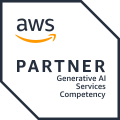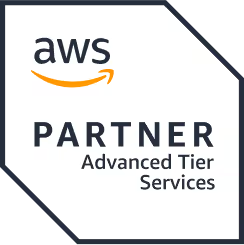Recruitment 2.0: How We Revamped Our Processes To Hire Freshers At Scale
TL'DR
At Ideas2IT, we’ve always believed in a culture of picking the right people and betting on them, and freshers have been a big part of this culture. We have a rich history of hiring and training freshers, and our faith in them has been justified by our growth over the last few years. One of the most rewarding results of this culture is the fact that most of our lead architects and key players began their careers with us.One of the reasons we’ve been able to grow the way we have without diluting quality or brand value is the benchmark we’ve established in our hiring and training process. Whether during our multiple-step hiring process or our intensive training regimen, we’ve never compromised on quality.We’ve been growing rapidly, and our CEO wants us to grow faster still. One of the direct results of his growth mission was a quest to hire 30+ freshers in a single drive. When the recruitment team heard this, their first reaction was one of apprehension. Their primary concern:How are we going to scale up the recruitment process to take in as many as 30+ without losing a bit on quality?Once the question of scaling arose, we had to stop and think about the existing pain points in our system that might potentially impede performance at scale. And these were the immediate answers from our team:
Conversion rate:
In our current system, filtering from the top of the funnel to the next level (the tech panel round) was seamless. But the real problem was the ratio of the number of people who were selected in the tech round to the number of candidates who pass through the final round. The ratio was quite alarming - around 7:1. That implies for closing an offer for one qualified candidate, our tech panel needs to process around 10 candidates for themselves to pass on 7 candidates.
Availability:
This made us question the practicality of 1:1 interviews with the tech panel - in order to get a read on a candidate, an interviewer spends an average of 30 minutes. It might work for 10 or 15 candidates but is bound to break down at scale.So, an immediate need that we saw was that in order for the recruitment process to work at scale, we had to bump conversion rates to at least 90%.
Remember the traditional performance-fix fights that happen after project releases?
Something works fine in dev and staging but not in production, says the QA. Why can’t we replicate production data size in staging itself? Turns out, that applies to recruitment as well.
Can we mimic the final round?
For conversions to be effective in the final round, we could try and mimic the pattern that the final round follows, for the pre-final round as well. With this hypothesis guiding us, we came up with an interview pattern in which we achieved the conversion rates we needed.
Batch Processing
However, next came the challenge of utilizing our techies’ time optimally, because therein lies the ultimate problem of scalability - time. We figured if we were going to pick gems out of stones, why not test all of the stones in batches instead of one at a time? Yes, something similar to a Group Discussion, but a Group Assessment instead. This has two merits:
- It uses just one interviewer for a group of 10-15 candidates, thus lending itself to scalability.
- We can assess candidates relatively when they perform in a group.
And have we tasted the fruit of this new farming process?
We certainly have. The records show that the conversion rate is almost 100% and since most of the filtering happens in the pre-final round in batches, the time that an interviewer spends on interviews has reduced drastically. Also, since the pre-final round happens in batches, the number of techies needed to process a candidate is now 1:10, as compared to the traditional 1:1 and we were able to acquire fresh talent to the tune of 20+ from the market in a short span of time.Ideas2ITAre you looking to build a great product or service? Do you foresee technical challenges? If you answered yes to the above questions, then you must talk to us. We are a world-class custom .NET development company. We take up projects that are in our area of expertise. We know what we are good at and more importantly what we are not. We carefully choose projects where we strongly believe that we can add value. And not just in engineering but also in terms of how well we understand the domain. Book a free consultation with us today. Let’s work together.







.png)
.jpeg)
.avif)















